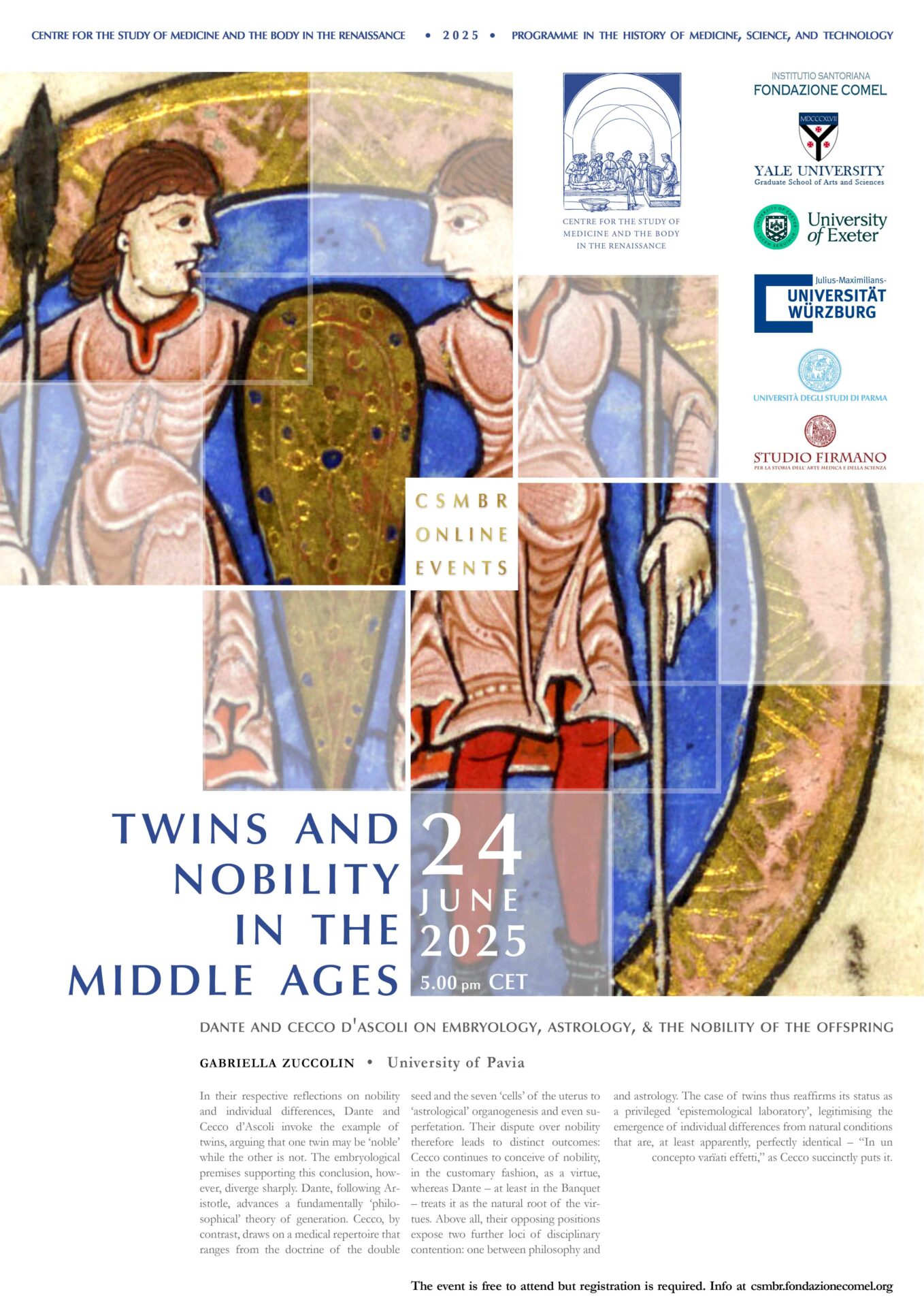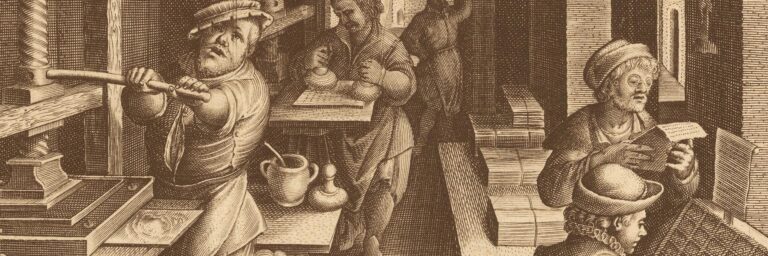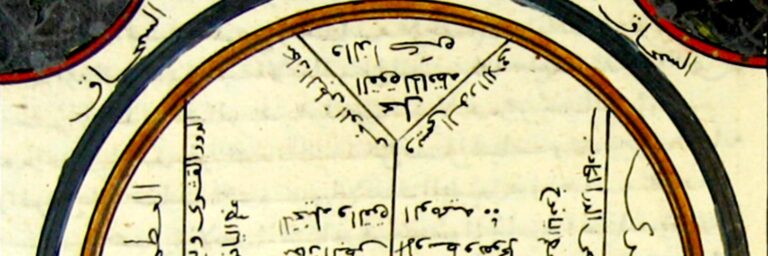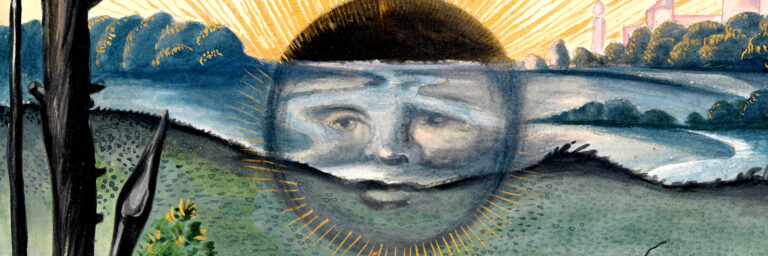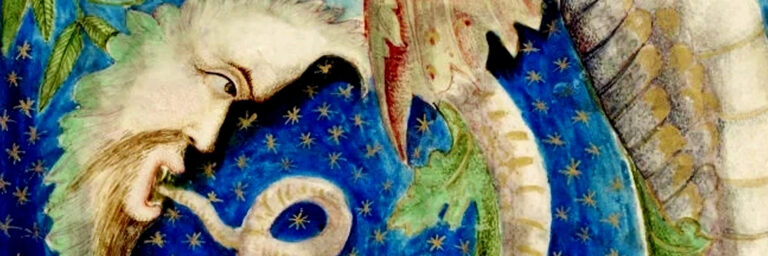Twins and Nobility in the Middle Ages
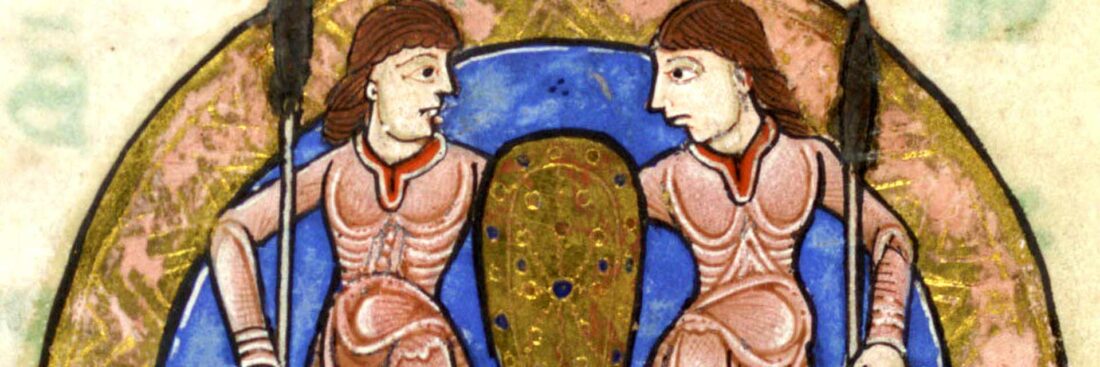
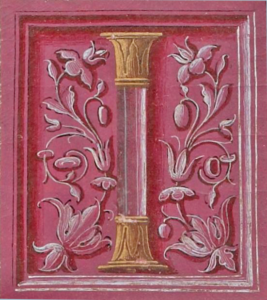
Twins and Nobility
in the Middle Ages
Dante and Cecco D'Ascoli
on Embryology, Astrology,
and the Nobility of the Offspring
Gabriella Zuccolin
24 June 2025 – 5 PM (CEST)
In their respective reflections on nobility and individual differences, Dante and Cecco d’Ascoli invoke the example of twins, arguing that one twin may be ‘noble’ while the other is not.
The embryological premises supporting this conclusion, however, diverge sharply. Dante, following Aristotle, advances a fundamentally ‘philosophical’ theory of generation. Cecco, by contrast, draws on a medical repertoire that ranges from the doctrine of the double seed and the seven ‘cells’ of the uterus to ‘astrological’ organogenesis and even superfetation.
Their dispute over nobility therefore leads to distinct outcomes: Cecco continues to conceive of nobility customarily as a virtue, whereas Dante – at least in the Banquet – treats it as the natural root of the virtues.
Above all, their opposing positions expose two further loci of disciplinary contention: one between philosophy and medicine, the other between philosophy and astrology.
The case of twins thus reaffirms its status as a privileged ‘epistemological laboratory’, legitimising the emergence of individual differences from natural conditions that are, at least apparently, perfectly identical – “In un concepto varïati effetti,” as Cecco succinctly puts it.
About the Speaker ...
Gabriella Zuccolin is Associate Professor of History of Medieval Philosophy at the University of Pavia.
She was Andrew W Mellon fellow at I Tatti – The Harvard University Center for Italian Renaissance Studies, Wellcome Trust Fellow at the University of Cambridge – associated with King’s College – and held grants from the Open University and the Warburg Institute. She is the author of the volumes Michele Savonarola medico humano. Fisiognomica, etica e religione alla corte estense (2018) and I gemelli nel Medioevo. Questioni filosofiche, mediche e teologiche (2019). In 2022, she edited Savonarola’s De regimine pregnantium (A Mother’s Manual for the Women of Ferrara – A Fifteenth-Century Guide to Pregnancy and Paediatrics) in the series The other Voice in Early Modern Europe.



